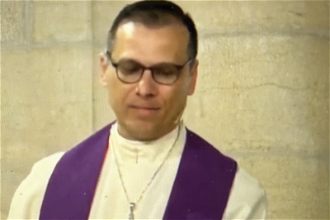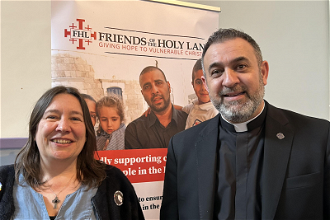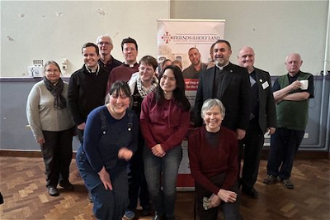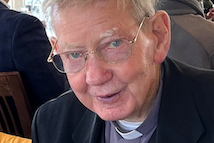Filmmaker writes on endangered heritage of Bethlehem
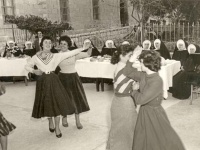
St Joseph's School, 1960
Ahead of Pope Francis' visit to Bethlehem this week, Palestinian filmmaker Leila Sansour warns that the city's tradition of peaceful coexistence is in danger of vanishing completely. Writing in the Elders blog she describes the vibrant city where she grew up.
I have always known that Bethlehem is a unique place but it was always difficult to put it into words. Despite its global fame, no one has tried to tell the story of my town beyond the stereotypes of the Nativity or the brutality of military occupation. Yet Bethlehem does have another story, and understanding it is key to a meaningful engagement with the politics of the Middle East.
It wasn’t until very recently that I discovered an account that supports my long-held belief about Bethlehem’s unusual pedigree. The study was carried out by a British historian called Jacob Norris. His research reveals an extraordinary tale of a humble town going global, not just because of its biblical brand but also because of the initiative and acumen displayed by its inhabitants.
Close to Jerusalem, yet tucked away from the direct pressures of the Ottoman administration that ruled Palestine from 1516 to 1917, Bethlehem was able to forge an identity of its own aided by the Franciscan monks whose mission in Bethlehem, as in other parts of Palestine, was to guard the Christian holy sites. Sensing the fragile nature of their welcome in a region ruled by a Muslim caliphate, the Franciscans sought to strengthen their presence in the Holy Land by forging closer links with Bethlehem’s native Christian community. They opened schools and started workshops where they produced artefacts branded “Made in the Holy Land” – and Christian Europe could not get enough.
At first, the main beneficiaries of this growing industry were the Franciscans themselves. But as early as the 18th century, Bethlehemites would go above the heads of the Franciscans to forge their own trade routes, travelling and establishing offices as far away as Kiev, America and the Philippines. They turned their trade into a multimillion dollar industry that would bring Bethlehem enormous wealth and, more importantly, a global outlook.
Now, looking back at the 1970s, the time that I was growing up, I recognise the privileges we enjoyed: the privilege of wealth; the privilege of an excellent education, which was almost universal in Bethlehem; and, more importantly, the privilege of an easy attitude towards difference.
Bethlehem was diverse not just because it was a top address for Christian missionaries and pilgrims throughout the ages, but because its own population was a blend of Christians and Muslims who have made a happy marriage in a city where they could share the spiritual space as well as the wealth that came with it. Muslims venerate Jesus as a prophet, and pilgrimage to the Nativity church has always been common among the Muslims of Palestine.
Today, 47 years after the Israeli occupation of the town, the picture in Bethlehem is very different. The isolation of the city and the economic hardship brought about by the wall and the expansion of Israeli settlements means that the vast majority of Bethlehem’s original population have now left their hometown believing that it could no longer offer them a future. Many have lost their hard-earned, privately owned lands to settlements which now number 40. The wall has confiscated most of Bethlehem’s agricultural fields and landmarks, leaving no space for the city to expand or even build basic amenities. The vast majority of those who have left the town, like my own family, are Christian. They constituted most of the wealthy urban population, having been better positioned to benefit from the tourist trade.
To see Leila's full article and photographs on The Elders site, go to:
http://theelders.org/article/pictures-bethlehem-under-threat



